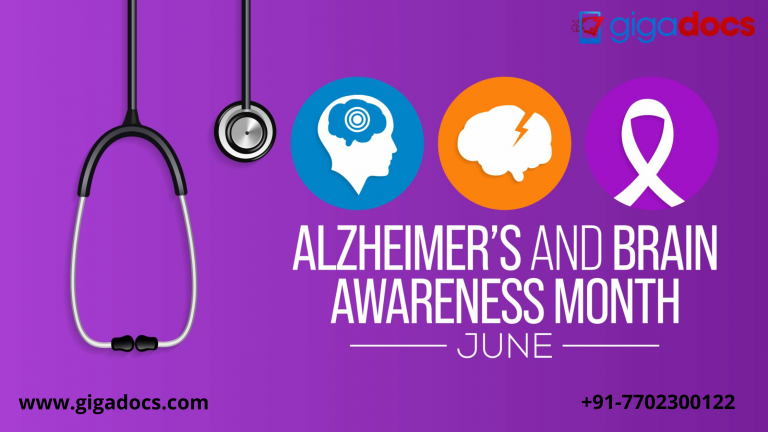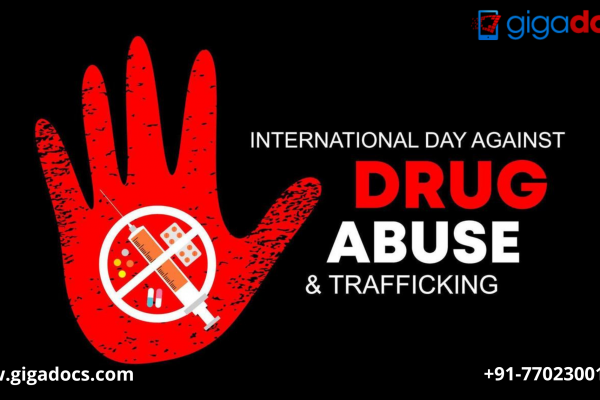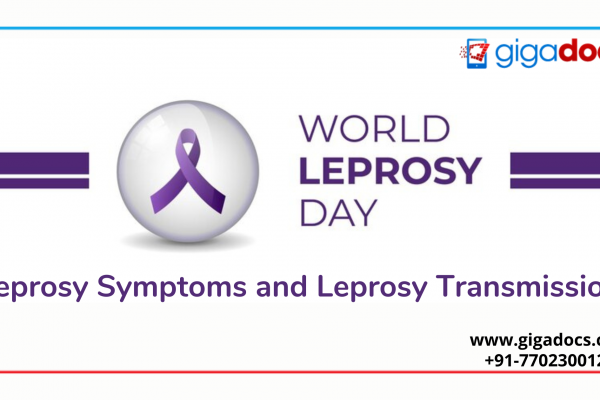Dementia affects one person every three seconds around the world, with nearly 50 million people living with the disease. Worse the number of those affected is expected to cross 132 million by 2050.
Dementia and Alzheimer’s disease is there a difference?
What is Alzheimer’s? It is the most common type of dementia that affects the part of the brain that influences memory, language, and thinking. Though Alzheimer’s is considered a disease of the elderly, striking after 65, it can impact anyone below 65.
Alzheimer’s and Brain Awareness Month
Every year the, Alzheimer’s And Brain Awareness Month is celebrated every June by the Alzheimer’s Association to raise awareness about Alzheimer’s and to show support to those living with dementia and Alzheimer’s.
As we observe Alzheimer’s and Brain Awareness Month, let’s honor the true dedication of the caregivers caring for those with Alzheimer’s and dementia. Here are the essential facts we all must be aware of-
- Difficulty speaking or finding the right words during conversations, behavioral changes, and difficulty with daily tasks like dressing are early signs of dementia. According to the Alzheimer’s Association, only half of Alzheimer’s patients are informed of their diagnosis by their doctors.
- Dementia claims many lives every year. It is estimated that over 40 million people worldwide have dementia, and that number is only growing. While this is a large number, it is expected to continue to rise over time, reaching 135 million by 2050.
Alzheimer’s frequently causes premature death. It’s the is the sixth leading cause of death worldwide. Alzheimer’s disease is well-known for causing debilitating memory loss, making daily tasks difficult.
Memory loss? A case of Dementia?
While everyone’s brain changes as they get older, it’s important to remember that Alzheimer’s disease is not one of the changes. Although memory loss is one of the first signs of Alzheimer’s disease, forgetting words or names does not always indicate dementia. In addition to memory loss, Alzheimer’s disease can cause different symptoms in its early stages.
In our blog article, “Alzheimer’s Awareness Month: How are Alzheimer’s and Dementia Different?
, Gigadocs goes into detail about this topic, including how to tell if your aging loved one needs to be evaluated for dementia-related diseases.
Superfoods that increase your mental acuity and keep your mind sharp
You keep track of what you eat, exercise regularly, and don’t smoke. You take steps to protect your heart, such as avoiding too much salt and sugar in your diet and limiting your intake of processed foods. At the same time, it’s good to introspect that are you looking after your mental well-being?
June is Alzheimer’s and Brain Awareness Month, so take a look at your diet to see if it’s helping to keep your mind as sharp as possible. Plaques form in the brain, causing a progressive loss of cognitive ability and a decline in daily function.
- Leafy vegetables
Do you still need an excuse to eat that salad? Consumption of leafy green vegetables has been linked to a slower rate of cognitive decline in the elderly. You also don’t have to go crazy with the greens! It only took one serving of leafy green vegetables per day to help slow down brain aging.
- Grapes
Grapes have been shown to positively affect brain function in numerous animal and human studies. Grapes aid in the promotion of normal blood flow and blood pressure and the reduction of oxidative stress in the brain, all of which are beneficial to brain health.
- Walnuts
Inflammation plays a crucial role in Alzheimer’s disease and other brain disorders, just as it does in different conditions. Walnuts are high in polyunsaturated fatty acids, polyphenols, and tocopherols all of which help reduce inflammation and provide antioxidant benefits. Numerous studies have demonstrated the benefits of walnuts in a healthy diet for brain health.
- Fish
Fatty fish is one of the most well-studied foods for brain health. DHA omega-3 fatty acids, found in fatty fish such as Tuna, Pomfret, are a type of polyunsaturated fat. These fatty acids aid in brain protection and may lower your risk of Alzheimer’s disease.
- Chocolate/cacao
The flavonoids in cocoa powder, cacao nibs, and chocolate are beneficial to the memory and learning regions of the brain. In humans, the main flavonoid, epicatechin, improves various aspects of cognition, lowering the risk of Alzheimer’s disease and stroke.
- Yogurt
We already know that milk is good for our bones and that fermented dairy foods can help with gut health, but new links between dairy foods and brain health are being discovered. Our gut has its nervous system and can produce many of the same neurotransmitters as the brain, including serotonin.
Consulting a Neurologist
A Neurologist specializes in neurological disorders, like brain and nervous system diseases. Alzheimer’s disease has no known cure at this time. Alzheimer’s disease can be slowed with the use of certain medications. These medications assist people in going about their daily lives. They may also be able to help with some of the personality and behavioral changes.
When Should You Consider Getting a Dementia Evaluation?
It’s time to see a doctor when memory lapses become frequent or noticeable enough to worry you or a family member. If you reach that point, schedule an appointment with a primary care physician for a thorough physical examination as soon as possible. The Gigadocs tele healthcare app can help you plan an initial dementia evaluation with a Neurologist.
Specialist doctors on the Gigadocs app can assess your risk factors, evaluate your symptoms, rule out reversible causes of memory loss, and assist you in getting the care you need. Early detection can help treat reversible causes of memory loss and improve the quality of life for people with Alzheimer’s disease and other forms of dementia. Download the Gigadocs app from the App Store or Google Play to schedule your consultation.
To book your consultation, download the Gigadocs app from-
IOS App – apple.co/2W2iG4V
Android App – bit.ly/33AQoRC




